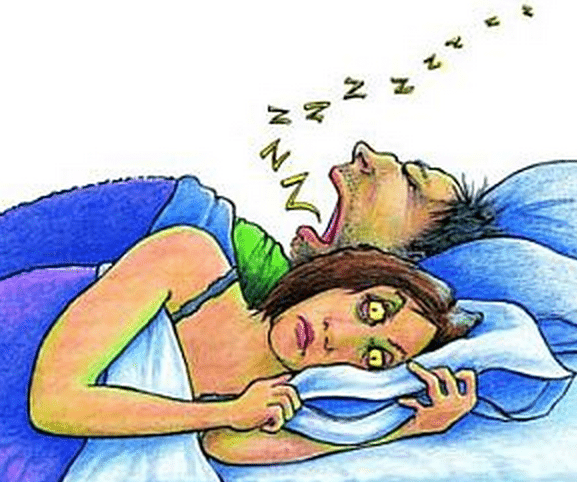Do you face trouble breathing while you are sleeping? You’re not alone. Millions of people suffer from breathing problems while sleeping every year. In this article, we will discuss the causes and solutions to breathing problems while sleeping. We’ll also provide some tips on how to get a good night’s sleep. So, if you’re having trouble breathing at night, read on for some helpful information!
Breathing Problem while sleeping occurs when breathing begins and stops during sleep. Some types of sleep apnea cause snoring and daytime sleepiness. Obstructive sleep apnea is the most common sleep disorder which makes you stop a few times and start breathing while you sleep.
Contents
Breathing Problem And Sleep Issues
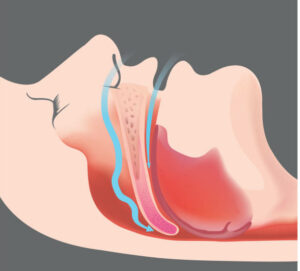 Breathing problem while sleeping is normally caused by a blockage of the upper respiratory tract, usually the airway tissue. This airway obstruction causes the tongue to fall against the soft palate or throat, an obstruction that can make breathing difficult. In some cases, it may be due to a combination of both an upper and lower airway obstruction.
Breathing problem while sleeping is normally caused by a blockage of the upper respiratory tract, usually the airway tissue. This airway obstruction causes the tongue to fall against the soft palate or throat, an obstruction that can make breathing difficult. In some cases, it may be due to a combination of both an upper and lower airway obstruction.
The breathing problem while sleeping can also be caused by Sleep Apnea, which is a condition that causes breathing to stop and start during sleep. Sleep apnea can be caused by a number of factors, including obesity, smoking, and family history. It is a serious condition that can lead to health problems, such as high blood pressure and heart disease
Symptoms
Signs of breathing issues with sleep apnea include:
- Excessive sleepiness during the day
- Loud snoring
- Sleep apnea episodes observed
- Sudden awakening followed by gasping or suffocation
- Waking up with a dry mouth or sore throat
- Morning headache
- Difficulty concentrating during the day
- Mood swings, such as depression or irritability
- High blood pressure
- Decreased libido
The above-mentioned signs can be visualized in anyone who is suffering from breathing problems while sleeping.
Sleep Disorders Linked With Breathing Problems
There are three types of sleep issues that affect your quality of sleep due to the breathing problems you face. Knowledge of all three types of sleeping disorders is a must to know the causes and remedies well. They are well defined below:
 Obstructive sleep apnea (OSA)
Obstructive sleep apnea (OSA)
This is the most common type of sleep apnea. It occurs when your throat muscles intermittently relax and block your airway during sleep. This is the most common type. The visible sign of obstructive sleep apnea is snoring. Anyone can experience sleep apnea. But this condition is more common in men, obese people, and those who sleep on their backs. Without proper treatment, this condition can increase the risk of high blood pressure, diabetes, and other health conditions.
Central Sleep Apnea (CSA)
This type of sleep apnea occurs when your brain doesn’t send proper signals to the muscles that control your breathing. This type does not block your airways. Instead, your brain cannot force your muscles to breathe due to problems at your respiratory control center. It has to do with the function of your central nervous system.
Complex Sleep Apnea
This type of sleep apnea is a combination of both OSA and CSA. Complex sleep apnea syndrome. This condition, which doctors also call central sleep apnea as a treatment, occurs when you have chronic sleep apnea and central sleep apnea.
These are the major type of sleep disorders connected with breathing problems. You may be suffering from any of these sleep issues if you breathe improperly while sleeping.
Causes
Anyone can develop obstructive sleep apnea. However, there are several factors that increase your risk, including:
Over Relaxation Of Muscles 
Obstructive sleep apnea occurs when the muscles in the back of the neck relax too much to allow normal breathing. These muscles support structures, including the back of the mouth (soft palate), a triangular piece of tissue that hangs from the soft palate (uvula), the tonsils, and the tongue. When the muscles relax, the airway narrows or closes when you inhale, interrupting breathing for 10 seconds or more.
Obesity
Most, but not all, people with obstructive sleep apnea are overweight. Fat deposits around the upper respiratory tract can interfere with breathing. Obesity-related medical conditions, such as hypothyroidism and polycystic ovary syndrome, can also cause obstructive sleep apnea.
Older Years
The risk of obstructive sleep apnea increases with age but decreases after the 60s and 70s. Narrow airways. You can inherit narrow airways naturally. The tonsils or adenoids can enlarge and block your airways.
Hypertension
Obstructive sleep apnea is relatively common in people with high blood pressure. It damages the arteries, making them more likely to become blocked. This increases the risk for obstructive sleep apnea because it narrows airflow. Further, people with hypertension have higher levels of inflammation in their bodies. This can contribute to the development of sleep issues by causing tissue in the airway to block breathing.
Chronic Nasal Congestion
Obstructive sleep apnea occurs twice as often in those who experience persistent nasal congestion at night, regardless of the cause. This may be due to narrowed airways.
Smoke
People who smoke are more likely to have obstructive sleep apnea and they find it difficult to breathe properly. Smoking damages the air sacs in the lungs and causes inflammation. This makes it difficult for air to pass through the lungs and results in breathing difficulty.
Diabetes
Obstructive sleep apnea may be more common in people with diabetes. People with diabetes are more likely to have high blood pressure and other conditions that can contribute to sleeping disorders.
Family History Of Sleep Apnea
Having a family member with obstructive sleep apnea can increase your risk for sure as it remains in the genes and you may inherit it from anyone in the family suffering from the ailment.
Asthma
Research has found an association between asthma and the risk of obstructive sleep apnea. People with asthma are more likely to have breathing problems at night, which can lead to sleeping issues.
These are some root causes of breathing problems while sleeping.
Complications
Obstructive sleep apnea is considered a serious medical condition. Its mere negligence leads to severe problems ahead which affect your health and life adversely. Complications may include:
 Fatigue And Sleepiness Daily
Fatigue And Sleepiness Daily
Due to a lack of restful sleep at night, people with obstructive sleep apnea often experience severe daytime sleepiness, fatigue, and irritability. They may have difficulty concentrating and falling asleep at work while watching TV or even while driving. This can put you at greater risk of accidents at work.
Children and adolescents with obstructive sleep apnea do poorly at school and usually have attention or behavior problems.
Cardiovascular Problems
The sudden drop in the level of oxygen in the blood that occurs during obstructive sleep apnea raises blood pressure and makes it difficult for the cardiovascular system. Many people with obstructive sleep apnea develop high blood pressure (high blood pressure), which can increase their risk of heart disease.
The more severe the obstructive sleep apnea, the higher the risk of coronary heart disease, heart attack, heart failure, and stroke.
Abnormal Heart Rhythms
Obstructive sleep apnea increases the risk of abnormal heart rhythms (arrhythmias), which can lower blood pressure. If there is underlying heart disease, these multiple episodes of repeated arrhythmias can lead to sudden death.
Complications With Drugs And Surgery
Obstructive sleep apnea is also a concern with certain medications and general anesthetics. These medications, such as sedatives, narcotic painkillers, and general anesthetics, relax your upper respiratory tract and can make your obstructive sleep apnea worse.
Abnormal Heart Rhythms
If you have obstructive sleep apnea, major surgery, especially after sedation and lying on your back, can make your breathing worse. People with obstructive sleep apnea may be more prone to postoperative complications.
Insomnia Partner
Strong snoring can prevent those around you from getting a good rest and eventually disrupt your relationship. Some couples decide to sleep in another room.
Risk Factor For COVID-19
Obstructive sleep apnea may be a risk factor for COVID-19. People with obstructive sleep apnea have been found to be at a higher risk of developing severe COVID-19 and requiring hospitalization than those without obstructive sleep apnea.
Other Problems
People with obstructive sleep apnea may also complain of memory problems, headaches in the morning, mood swings or depression, and frequent urination at night.
Solutions
There are several treatments available to cure breathing problems while sleeping. Chose wisely according to the severity of your condition and stick towards it to bring your healthy lifestyle back again. There are three basic solutions:
- Medical Treatment
- Natural Remedies
Medical Treatment
 If your doctor finds that you have sleep apnea, they’ll suggest treatment based on how critical your situation is. For normal cases, you can bring some lifestyle changes. You can Lose weight, say no to smoking, or treat nasal allergies (if you have any). If it does not relieve your symptoms or if you have moderate to severe sleep apnea, your doctor may recommend other treatments:
If your doctor finds that you have sleep apnea, they’ll suggest treatment based on how critical your situation is. For normal cases, you can bring some lifestyle changes. You can Lose weight, say no to smoking, or treat nasal allergies (if you have any). If it does not relieve your symptoms or if you have moderate to severe sleep apnea, your doctor may recommend other treatments:
- Continuous Positive Airway Pressure (CPAP): The most common form of treatment for sleep apnea is Continuous Positive Airway Pressure (CPAP). A CPAP machine delivers a gentle stream of air through a mask worn during sleep. The air pressure is just enough to keep your breathing passages open while you sleep. The machine uses a hose and mask or nosepiece to deliver constant and steady air pressure.
- Oral Appliances: It is a mouthguard-like device that brings your lower jaw or tongue forward during sleep. This prevents your airway from collapsing or getting blocked.
- Surgery: If other treatments don’t work, you may need surgery to remove excess tissue from your throat or palate, or to stabilize your jaw and tongue. Possible Surgeries include Uvulopalatopharyngoplasty (UPPP) which removes the soft palate and, sometimes, the uvula, Maxillomandibular advancement (MMA) which moves your upper and lower jaw forward, Radiofrequency ablation which uses radio waves to shrink excess tissue in your throat and Tracheostomy. The last procedure is the rarest one which creates an opening in your neck so you can breathe through a tube inserted into your windpipe.
If you have sleep apnea, consult with your doctor about which treatment option is best for you. With the proper treatment, you can get a good night’s sleep and improve your overall health!
Natural Remedies
Traditional treatments for sleep apnea include wearing a CPAP mask at night. Although effective, this method can be uncomfortable for some people. Some home remedies may have the same benefits. Here are six alternative treatments to reduce the symptoms of sleep apnea.
Lose Weight
Obesity is a major cause of sleep apnea. Doctors usually recommend that people with sleep apnea lose weight. Obesity, especially in the upper body, can increase the risk of airway obstruction and narrowing of the nasal passages. These barriers can lead to sudden or prolonged cessation of breathing during sleep.
Exercise
Regular exercise can help increase muscle tone and reduce snoring and breathing difficulties. Regular exercise increases energy levels, strengthen the heart, and reduces sleep apnea. Yoga can especially improve your breathing power and stimulate oxygen flow. Sleep apnea is associated with decreased blood oxygen saturation. Yoga can improve oxygen levels through various breathing exercises.
Alter Your Sleep Position
Sleeping on your back allows gravity to collapse your airway, causing breathing difficulties. Sleeping on your side keeps the airway open and prevents breathing problems. Talk to your doctor about the location of your body and the symptoms of sleep apnea to evaluate treatment options.
Avoid Alcohol Before Bed
Alcohol relaxes the muscles in your throat, which can lead to snoring and breathing difficulties. Lifestyle changes can improve your health and improve your sleep. Consider limiting alcohol intake to reduce the complications of sleep apnea.
Quit Smoking
Smoking irritates the throat and increases mucus production, both of which can contribute to breathing difficulties while sleeping. Like alcohol, smoking can cause inflammation and swelling of the airways. May increase snoring and sleep apnea.
Use A Humidifier
A humidifier is a device that adds moisture to the air. This can keeps nasal passages moist and helps reduce congestion and breathing difficulties.
Conclusion
Finally, at the end of this article, it is concluded that breathing problem while sleeping is hazardous to health. One should not ignore the implications as they may grow further. Further, breathing problems while sleeping can be resolved by various remedies. Know your problem well and seek the best solution. After all, Life is precious and health is wealth. Quality sleep is necessary for good health so, don’t let breathing problems while sleeping bothers you and take good care of yourself.
For more information, please contact MantraCare. Sleep is an essential part of our daily routine and it plays a significant role in maintaining a healthy body and mind. If you have any queries regarding Online Insomnia Counseling experienced therapists at MantraCare can help: Book a trial therapy session
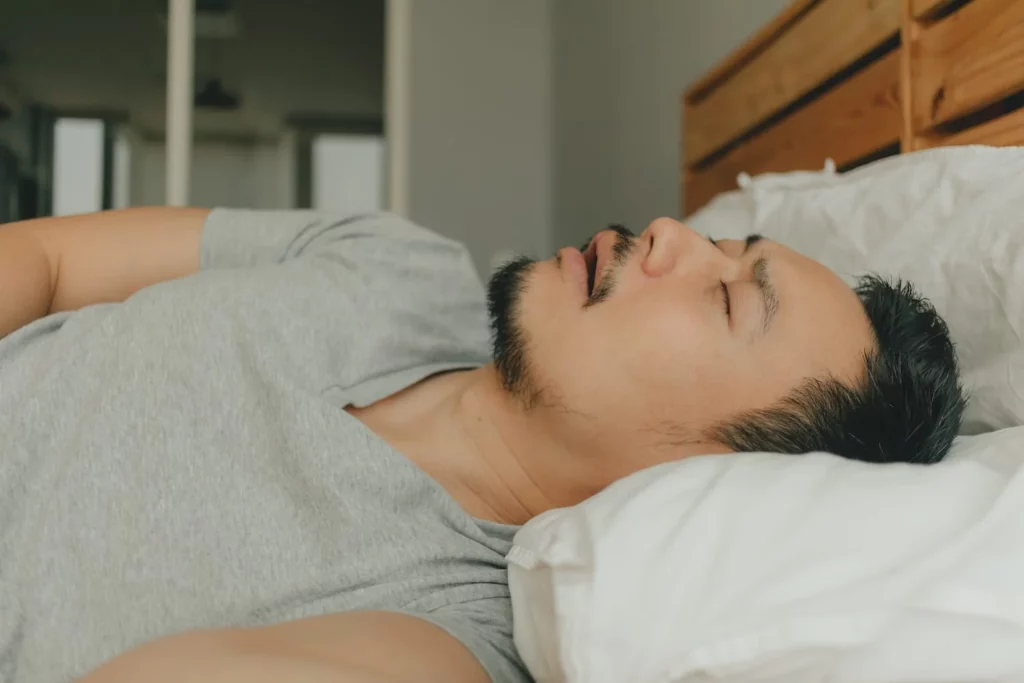
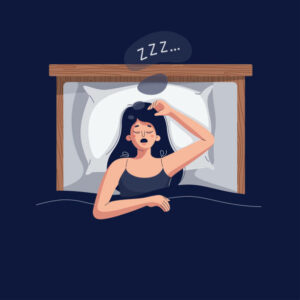 Obstructive sleep apnea (OSA)
Obstructive sleep apnea (OSA)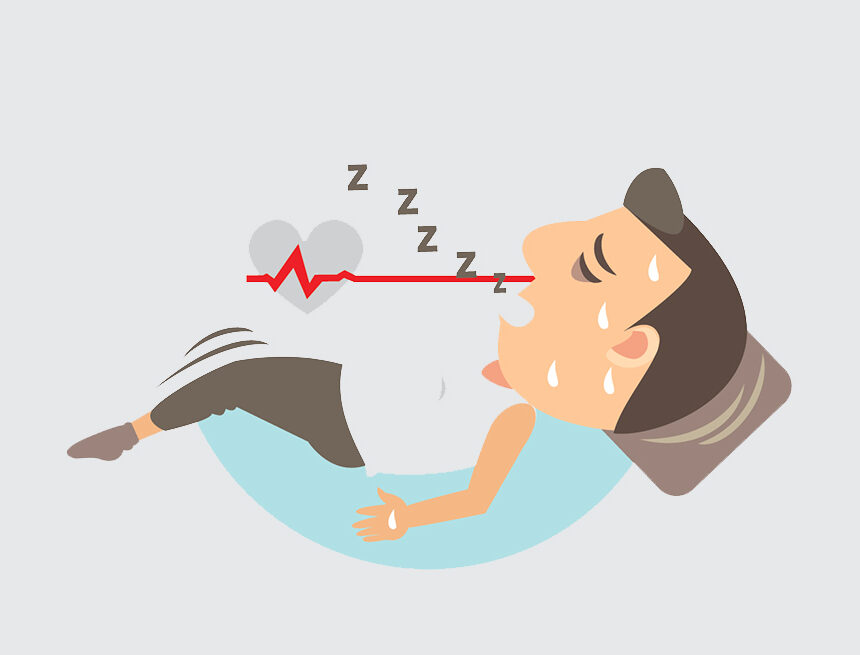
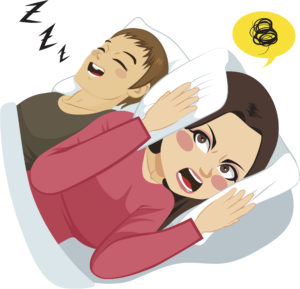 Fatigue And Sleepiness Daily
Fatigue And Sleepiness Daily